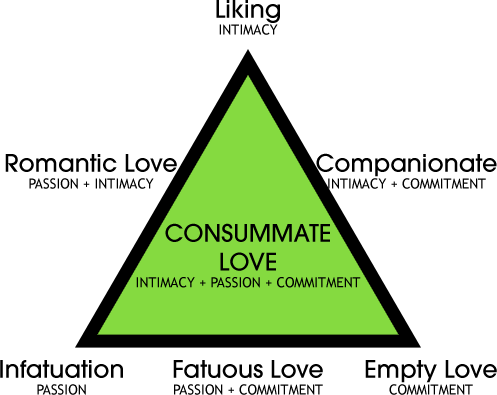We recently celebrated the most romantic holiday of the year: Valentine’s Day. As the holiday came about I had several people ponder, in session, if they are a relationship with a partner that they can truly love for a lifetime. Many people spoke of the positive qualities of their partner; how much they appreciate them and the ways they have fun together. As I took this information in I began to recall the three elements that combine to create/define Consummate (all encompassing) love.
According toSternberg (author of “The Triangular Theory of Love“) Consummate love is composed of 3 elements:
1. Passion- a strong desire for another person, and the expectation that sex with them will prove to be physiologically rewarding.
2. Intimacy- the ability to share one’s deepest and most secret feelings and thoughts with another.
3. Commitment- the strongly held conviction that one will stay with another, regardless of the cost.
These three aspects are the holy trinity of a healthy marriage. There are also many other types of love that do not include all three components:
Liking (intimacy, but not passion or commitment)
Infatuation (passion, but not commitment or intimacy)
Empty love (commitment, but no passion or intimacy)
Romantic love (Intimacy and passion, but no commitment)
Fatuous love (Commitment and passion, but no intimacy)
Companionate love (commitment and intimacy, but no passion)
Throughout a relationship these aspects will ebb and flow; sometimes they will be high and at other times they will be low. As couples go through the transitions of life different times will call for varying degrees of passion, commitment and intimacy. Overall, a healthy marriage will include all three in some combination.

